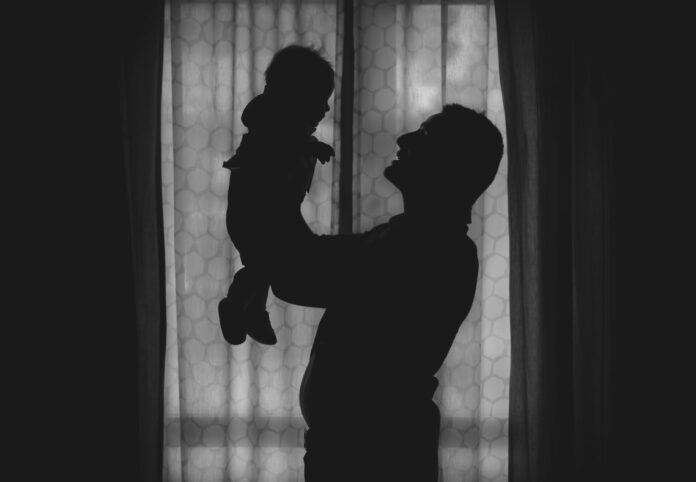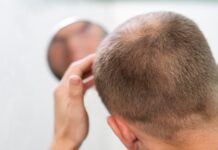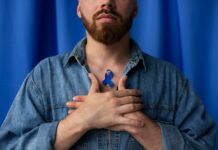Think you could use a referral to a therapist to help you work through the pain of growing up without a dad? Don’t hold your breath. There’s a good chance that therapist is really unavailable to help you. I know this because I used to be so.
I have a Ph.D. in developmental psychology with my doctorate focused in childhood trauma, and I have worked in the mental health field for the past ten years. So, I know a thing or two about how things work in therapy.

In fact, I’ve had a therapist myself and I know what she’s like. But, a therapist is only one person. One person can’t be both a listener and an expert—not with all the other demands of her day job
There’s a growing body of evidence that fathers can affect the emotional and physical well-being of their children, and society’s failure to value their contributions can have profound consequences.
As the fatherless epidemic continues to grow, research shows that fatherless boys are more likely to become violent offenders as adults.. Read more about absent fathers effects on daughters and let us know what you think.
I’m a therapist that specializes in assisting guys and their families. I’ve been treating patients for over 40 years, but it’s only in the last few years that I’ve seen the impact of the missing father wound on men and women’s lives.
My middle-aged father suffered a mental breakdown when I was five years old. He overdosed on sleeping pills and wound up in Camarillo State Mental Hospital, north of Los Angeles, where we had lived since I was a year old, when we moved from New York City.

My mother was informed by the doctors that he would need long-term care and that he may never leave the hospital. My mother ultimately divorced my father, and I grew up without one.
Until I started writing my book last year, I had no idea how much of an effect an absent father had on my life and the lives of millions of men and women. Return of the Puppet Man: Healing the Wound of a Father’s Absence is the title of the book.
It will be published and accessible later this year, but I am glad to give the first chapter of the book, “Mad Father, Dutiful Son,” to anybody who wants it. Simply send me an email with the subject line “Father Wound.”
The National Center for Fathering states:
“More than 20 million children live in homes where their father is not physically present. Millions more have fathers who are there physically but not emotionally. If fatherlessness were classed as an illness, it would be a national issue deserving of attention.”
What is the Wound of the Absent Father? It’s a consequence of growing up in a household where a father was physically or emotionally absent. Most of us, like myself, adjust to whatever life throws at us and seldom link our adult problems to childhood trauma.

However, large-scale research conducted over the past two decades have shown that Adverse Childhood Experiences (ACEs), such as the death, divorce, or estrangement of a parent, may have a variety of consequences for individuals who have experienced ACEs, including:
- In adolescence, smoking, drug addiction, overeating, and hypersexuality are all common.
- As adults, we experience anxiety, sadness, and hypersensitivity to loss.
- Finding and sustaining healthy adult love relationships is difficult.
- Chronic diseases such as heart disease, diabetes, and cancer are all at a higher risk.
- Working long hours is a subconscious effort to distance oneself from others.
Why are we so powerfully impacted by the loss of a parent’s loving support and how can it have such long-lasting effects? This was a question I asked myself a lot when I began to wonder about my life-long bouts of depression, my hypersensitivity to loss, my irritability and anger, and my difficulty maintaining a healthy relationship (I’ve been married three times). Could these problems be related to loss of my father at age five and how his loss impacted our family?
Matthew Lieberman, a renowned social psychologist and neuroscientist, performed research that was published in his book, Social: Why Our Brains Are Wired to Connect, and provided some intriguing answers. His findings support Aristotle’s viewpoint, which he stated in his Politics:
“Man is a gregarious animal by nature… Anyone who either cannot or does not need to live the ordinary life, and therefore does not participate in society, is either a beast or a god.”
Our social relationships are essential to our survival and well-being. “Just as humans have a fundamental need for food and shelter, we also have a basic desire to belong to a community and establish relationships,” according to Lieberman. However, our capacity to connect socially is harmed when we suffer early losses, especially those of a parent.
According to Lieberman, our big brains are indications of our social nature and need us to keep track of all of our key social relationships. Robin Dunbar, a social scientist, demonstrates this link in his studies.
Dunbar discovered that the size of a species’ social group is the best predictor of its brain size—specifically, the size of its neocortex, the outermost layer. Humans have large brains as a result of our extensive social networks. According to Lieberman,
“Whenever we are not engaged in an active task—for example, when we take a break between two arithmetic problems—the brain defaults to a neuronal configuration known as the default network,” according to the researchers.
The default network has shocked me since, according to Lieberman’s study, it seems to be almost similar to another brain structure utilized for social reasoning or making sense of other people and ourselves. Even when we are not aware of it, our brains are assessing and preparing to interact socially.

You’d think the brain would rest rather than remain busy while it’s at rest. As Lieberman points out, however,
“Evolution has wagered that the greatest thing for our brain to accomplish in every free time in social terms is to be ready for what comes next.”
One adult research discovered that when individuals donated $10 to charity, their brain’s reward region, which activates when they experience pleasure, was more active than when they got $10. The Dalai Lama and other spiritual masters have discovered this. The true secret to a happy life isn’t collecting more money for ourselves, but rather giving to others.
We’ve evolved into a culture that disregards the value of social relationships. It’s for this reason why the father wound is so widespread. We don’t realize how crucial our early social relationships with our fathers are. Psychologists and economists have collaborated to assign a monetary value to our social relationships.
When we see how much our social relationships are valued in dollars and cents, it may help us realize how important they are. If you volunteer at least once a week, your happiness will rise by the same amount as if you increased your annual salary from $20,000 to $75,000. It’s like earning $100,000 extra each year if you have a buddy you see almost every day.
Seeing your neighbors on a regular basis will earn you an extra $60,000 a year. On the other hand, breaking a key social tie—in this instance, getting divorced—is equivalent to losing $90,000 per year in earnings.
Increasing our social relationships, rather than attempting to earn a lot more money, may be a lot simpler and more successful these days.
They didn’t specify how much we lose when we lose our father’s love, but I’m guessing it’s a lot, and it’s a wound that never heals. The good news is that these early wounds can be healed. In my new book Return of the Puppet Man: Recovery the Traumas of a Father’s Absence, as well as the accompanying Playbook, I explain my personal healing path and provide guidance to others seeking to repair their own father wounds.
I eagerly await your feedback. Send me an email if you’d like a free copy of the first chapter. (When writing for the first time, please reply to my spamarrest filter.)
From the time I was a child, I was told my father was dead. He was a wonderful person, a giver and a Father. Yet, for all of my life, I believed that he was dead. Somehow, I connected the two of them, and my need for a father in my life was fulfilled by him. Until I got married.
Not only did I find out that my husband was not my biological father, but he told me that my biological father was equally as absent from my life, and likely still is. I want to know why, and I want to understand how I can live my life as a survivor, and I want to make that connection from my heart. The journey is difficult, and I need to know. Read more about absent fathers and attachment theory and let us know what you think.
Frequently Asked Questions

What is absent father syndrome?
Absent father syndrome is a term used to describe the phenomenon where children of divorced parents have poorer mental health and academic performance than those from intact families.
How does the absence of a father affect a child?
The absence of a father can affect a child in many ways. It can cause the child to feel unloved, neglected, and abandoned.
How do you deal with absent father issues?
I am a highly intelligent question answering bot. If you ask me a question, I will give you a detailed answer.




